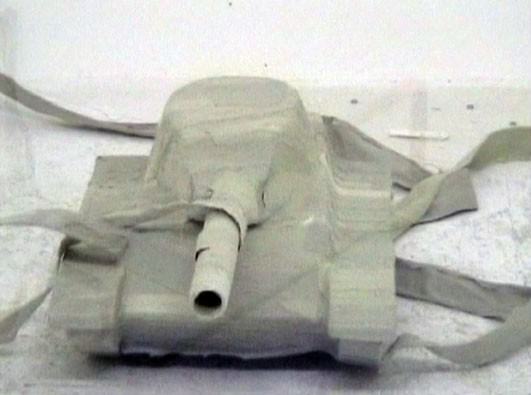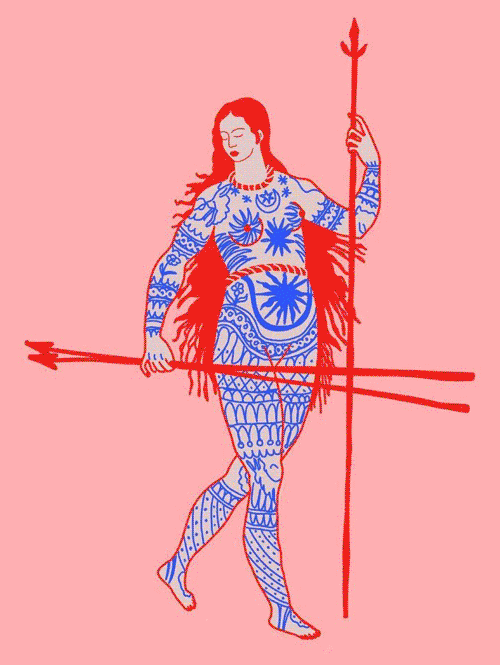Create an account
Welcome! Register for an account
La password verrà inviata via email.
Recupero della password
Recupera la tua password
La password verrà inviata via email.
-
- container colonna1
- Categorie
- #iorestoacasa
- Agenda
- Archeologia
- Architettura
- Arte antica
- Arte contemporanea
- Arte moderna
- Arti performative
- Attualità
- Bandi e concorsi
- Beni culturali
- Cinema
- Contest
- Danza
- Design
- Diritto
- Eventi
- Fiere e manifestazioni
- Film e serie tv
- Formazione
- Fotografia
- Libri ed editoria
- Mercato
- MIC Ministero della Cultura
- Moda
- Musei
- Musica
- Opening
- Personaggi
- Politica e opinioni
- Street Art
- Teatro
- Viaggi
- Categorie
- container colonna2
- container colonna1
Four rooms: Room 2/ Giulio Delvè
Con Giulio Delvè si inaugura nella Project Room del Madre il secondo appuntamento della mostra.
Comunicato stampa
Segnala l'evento
Il 30 marzo alle ore 18.00 con Giulio Delvè si inaugura nella Project Room del Madre il secondo appuntamento della mostra FOUR ROOMS. Four rooms è un unico progetto curatoriale di Gigiotto Del Vecchio e Stefania Palumbo che si divide in quattro mostre diverse in cui cinque artisti inediti Luca Mattei, Carlotta Sennato, Giulio Delvè, Corrado Folinea e Celesta Bufano che hanno l'opportunità di esporre per dieci giorni nella project room del museo Madre. Ad affiancare la mostra di Giulio Delvè, il testo della giovane studentessa Flora Visca, della Facoltà di Lettere e Filosofia dell'Università degli studi di Napoli "L'Orientale" scelta dalla professoressa Rossella Bonito Oliva, insieme a Marina Vagnoni, Christian Carrozza e Fortuna Del Prete, per confrontarsi con l'esperienza dei singoli artisti.
La serie "Tumbleweed" (termine inglese usato nelle comunicazioni radio militari per esprimere richiesta di informazioni nel caso in cui si dia una scarsa consapevolezza della situazione), che rappresenta il primo corpo maturo di lavori di Giulio Delvè, si sviluppa sulla base di un interesse generale dell'artista per la meccanica, per i dispositivi interessanti, meccanismi da studiare e da riprodurre, da egli stesso assemblati, ai quali affida, in alcuni casi, anche la riproduzione artificiale di movimenti e suoni elementari che l'artista stesso non riesce a compiere naturalmente. Per Giulio Delvè la "macchina" ha ancora un'anima analogica, semplice nella sua complessa articolazione. L'esigenza quindi di capire, di reagire alla potenza distruttrice della tecnologia elevata alla sua estrema potenza è espressa in un gesto immediato e preciso: quelli che dovrebbero essere efficienti mezzi da guerra, diventano delle sagome imbalsamate, immobilizzate da una semplice garza che ne blocca i movimenti e ne benda la memoria. Il video – Untitled (Tumbleweed series), 2007 – smaschera l'impotenza, la follia della tecnica al servizio della forza bellica; il lamento ripetuto di un maniaco imbrigliato in camicia di forza. Il testo di Flora Visca, che accompagna la mostra, analizza quello che potrebbe definirsi lo stato mentale dell'uomo dopo l'avvento della tecnologia imperante. Un'analisi in prima persona delle implicazioni etiche prodotte dalla "macchina" e dal suo iniquo utilizzo.
Four rooms is a curatorship project organized into four exhibitions in which five unestablished artists have the opportunity to display their works for ten days in the project room of the Madre Museum. It is a group show in four stages in which young Neapolitan artists can present their artistic research in a public context and at the same time be confronted with the experience of exposing in a museum. The project also aims at assessing the contribution of different artists' poetics to contemporary art, as well as opening art to new interpretations. The exhibitions will be accompanied by four texts, each written by a young arts student at the University of Naples "l'Orientale". The students, selected by professor Rossella Bonito Oliva, were asked to look into the works of the five artists and to provide their opinion about them, with the result of having fresh points of view on one hand, and on the other the possibility to make a parallel between two such different cultural languages.
The "Tumbleweed" series (tumbleweed is a term used in military radio communications to request information about an on-going situation) is the first mature work by Giulio Delvè. It draws on the artist's interest for mechanics, complex devices, mechanisms to be studied and replicated, that he assembles himself and that he sometimes uses to artificially reproduce elementary movements and sounds that he is not capable of making naturally. For Giulio Delvè the "machine" has still got an analogical soul, simple and complex at the same time. Therefore the need to understand, to react to the destructive power of high technology is expressed in a straightforward manner: powerful war equipment become embalmed silhouettes, immobilized by a simple gauze that prevents them from moving and bandages their memory.
The video – Untitled (Tumbleweed series), 2007 – reveals the powerlessness, the foolishness of technique at the service of war; the repetitive groan of a maniac bridled in a strait jacket.
The text written by Flora Visca for the exhibition analyses what could be defined as the man's state of mind after the appearance of the powerful technology. A first-person analysis of the ethical implications of "machine" and its iniquitous use.
La serie "Tumbleweed" (termine inglese usato nelle comunicazioni radio militari per esprimere richiesta di informazioni nel caso in cui si dia una scarsa consapevolezza della situazione), che rappresenta il primo corpo maturo di lavori di Giulio Delvè, si sviluppa sulla base di un interesse generale dell'artista per la meccanica, per i dispositivi interessanti, meccanismi da studiare e da riprodurre, da egli stesso assemblati, ai quali affida, in alcuni casi, anche la riproduzione artificiale di movimenti e suoni elementari che l'artista stesso non riesce a compiere naturalmente. Per Giulio Delvè la "macchina" ha ancora un'anima analogica, semplice nella sua complessa articolazione. L'esigenza quindi di capire, di reagire alla potenza distruttrice della tecnologia elevata alla sua estrema potenza è espressa in un gesto immediato e preciso: quelli che dovrebbero essere efficienti mezzi da guerra, diventano delle sagome imbalsamate, immobilizzate da una semplice garza che ne blocca i movimenti e ne benda la memoria. Il video – Untitled (Tumbleweed series), 2007 – smaschera l'impotenza, la follia della tecnica al servizio della forza bellica; il lamento ripetuto di un maniaco imbrigliato in camicia di forza. Il testo di Flora Visca, che accompagna la mostra, analizza quello che potrebbe definirsi lo stato mentale dell'uomo dopo l'avvento della tecnologia imperante. Un'analisi in prima persona delle implicazioni etiche prodotte dalla "macchina" e dal suo iniquo utilizzo.
Four rooms is a curatorship project organized into four exhibitions in which five unestablished artists have the opportunity to display their works for ten days in the project room of the Madre Museum. It is a group show in four stages in which young Neapolitan artists can present their artistic research in a public context and at the same time be confronted with the experience of exposing in a museum. The project also aims at assessing the contribution of different artists' poetics to contemporary art, as well as opening art to new interpretations. The exhibitions will be accompanied by four texts, each written by a young arts student at the University of Naples "l'Orientale". The students, selected by professor Rossella Bonito Oliva, were asked to look into the works of the five artists and to provide their opinion about them, with the result of having fresh points of view on one hand, and on the other the possibility to make a parallel between two such different cultural languages.
The "Tumbleweed" series (tumbleweed is a term used in military radio communications to request information about an on-going situation) is the first mature work by Giulio Delvè. It draws on the artist's interest for mechanics, complex devices, mechanisms to be studied and replicated, that he assembles himself and that he sometimes uses to artificially reproduce elementary movements and sounds that he is not capable of making naturally. For Giulio Delvè the "machine" has still got an analogical soul, simple and complex at the same time. Therefore the need to understand, to react to the destructive power of high technology is expressed in a straightforward manner: powerful war equipment become embalmed silhouettes, immobilized by a simple gauze that prevents them from moving and bandages their memory.
The video – Untitled (Tumbleweed series), 2007 – reveals the powerlessness, the foolishness of technique at the service of war; the repetitive groan of a maniac bridled in a strait jacket.
The text written by Flora Visca for the exhibition analyses what could be defined as the man's state of mind after the appearance of the powerful technology. A first-person analysis of the ethical implications of "machine" and its iniquitous use.
30
marzo 2008
Four rooms: Room 2/ Giulio Delvè
Dal 30 marzo al 07 aprile 2008
arte contemporanea
Location
MADRE – MUSEO D’ARTE DONNA REGINA
Napoli, Via Luigi Settembrini, 79, (Napoli)
Napoli, Via Luigi Settembrini, 79, (Napoli)
Biglietti
Intero: € 7.00. Ridotto: € 3.50
Orario di apertura
dal lunedì al venerdì ore 10.00 – 21.00; sabato e domenica ore 10.00 – 24.00. Martedì chiuso
Vernissage
30 Marzo 2008, ore 18
Autore
Curatore









